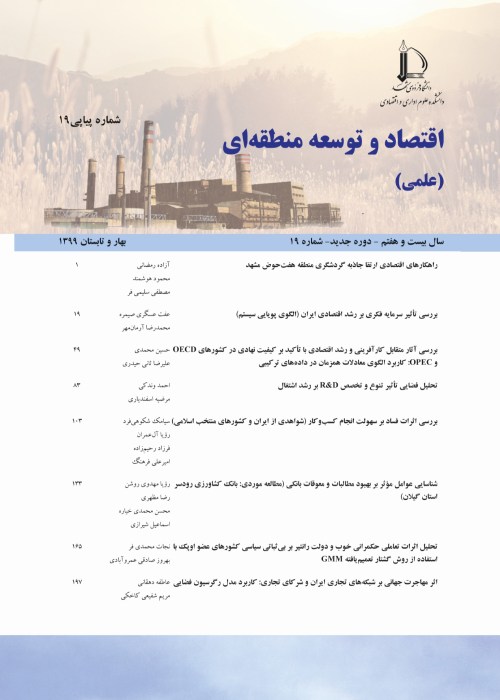Evaluating and analysing entrepreneurial ecosystem and business environment of provinces by PFB Approach
The aim of this study is the evaluation of entrepreneurship ecosystem of Iran provinces and its performance. In this regard, using Iran entrepreneurship ecosystem monitoring data, in 2019 which focused on institutional quality and individual dimensions of entrepreneurship ecosystem. Penalty for bottlenecked approach used to evaluate which pillars of entrepreneurship ecosystem in each province must be cared more. So then, in order to present a dynamic imagination of optimized allocation of policy making activities to maximize the values of business environment index and improving business environment of the provinces by PFB method introduced.
Entrepreneurship development as a major policy for economic growth and Development identified and emphasized in literature (Acs 2008, Szerb et al., 2016, Baumol 2003). While entrepreneurship has gained quick and ardent acceptance from practitioners in the policy agenda since its appearance, entrepreneurship policy as a quasi-independent field apart from public and small business policy has just been emerging recently ( Acs – Szerb 2007; Lunstrom – Stevenson 2005). Improving the business environment index pillars in country by focus on the weakest pillar is a strategy of Penalty for Bottlencked Approach in this regard, the Global Entrepreneurship and Development Index (GEDI) methodology of Acs et al. (2013) utilized.
The penalty for bottleneck method which used in Global Entrepreneurship and Development Index (GEDI) methodology of Acs et al. (2013) identifies the weakest pillar ecosystem. So ecosystem performance will improve by identifying the bottleneck as weakest pillar and actions to improve it. Simulations of bottleneck measure the scale of improvement of business environment index accordingly.
The simulated indices table of business environment components of provinces designed and findings indicates the necessity of concentration of policy making and present resources to improve the weakest pillars of each province. Mostly developed provinces including Isfahan, Razavi Khorasan, East Azerbaijan, Markazi, Mazandaran and Boushehr feel weakness in legal environment. While developing provinces including Alborz, Fars, Kordistan, Golestan, Hamedan, Ardebil and Chaharmalao bakhtiari indicates weakness in financial pillar. Also some other provinces report the cultural and educational environment pillar weakness including. Technology and innovation environment in industrial and trade hub provinces like Isfahan, Boushehr, Markazi and Hormozgan identified as superior pillar.
- حق عضویت دریافتی صرف حمایت از نشریات عضو و نگهداری، تکمیل و توسعه مگیران میشود.
- پرداخت حق اشتراک و دانلود مقالات اجازه بازنشر آن در سایر رسانههای چاپی و دیجیتال را به کاربر نمیدهد.


